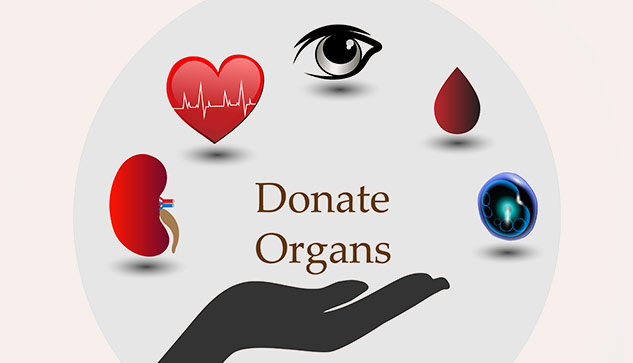
Organ donation is a concept that is misunderstood by many people in the country. Donation of organs that is with full will of the person and can be transmitted to another person alive is considered proper organ donation. There are only some organs and tissues that can be transplanted from an alive person to another to save his life. Organ donation is also done after a person is dead, and with his family’s permission, doctors take his efficient organs that can save someone else’s life. In most cases organ transplant are done for kidney, liver, pancreas, intestine, bone marrow, skin and cornea. However there are many myths revolving about organ donation that needs to be clarified. Let us look at some of the common myths and know the truth about it.
Table of Content:-

7 Myths about Organ Donation
1. Organ and tissue donation disfigures the body
This is a myth that is quite common. People believe that removing an organ from their body can disfigure their structure and cause visible signs. However this is not true, the fact is donated organs are actually removed by surgical method which does not harm body in any condition nor does it disfigure it. There are no visible signs of donation after the surgery is done. According to different condition such eye donation, only cornea is taken out which cannot be determined until eyes are closed.
2. Donor’s family or person asks for a lot of money
Well, this is partially true, but it only happens in the cases of live organ donation. In case when a person needs a live organ which is donated by someone else, then it depends on that person how to respond to it. A healthy way is to charge according to the rates mentioned by hospital, however in some cases people become greedy and take it as an opportunity to earn money. However in case of when a person is dead and his organs are taken for donation, no extra money is charged from them or the patient.

3. Anyone can Donate Organs
Well, this is a very wrong misunderstanding by majority of people. Not everyone can donate their organs; it depends on the condition of the person. If the person from whom the organ needs to be taken is not strong enough to handle the surgery or removal of an organ, then surgeon may not take organ from him. Generally people who are young and are healthy are only eligible for live organ donation. Doctors prefer taking organs from people whose heart are still beating.
Also medical conditions play a vital role. If a person is suffering from a major disease that may affect the person after organ donation, then that person is not eligible for organ donation. In some cases, doctor may prevent taking organs from people whose other organs are not totally functional as it may complicate the situation in some cases. Hence only few people become eligible for organ donation.
Also Read- What Causes Muscle Weakness? Try These 6 Natural Treatments To Build Strong Muscles
4. Too young for organ donation
Well, in a legal sense it might be true. A person below the age of 18 is not eligible to take decision for his organ donation, however in that case his parents can take the decision for him. Taking organs from children does not mean putting their lives into danger, doctor checks for all the possibilities and function of the body before doing a surgery. Organ donation is important because many children suffer from serious complications that need similar age group organs for them to revive their body. Therefore, if a teenager wishes to donate his organs, he can do so with consulting his parents.
5. Only Heart, liver or kidney can be donated

This is a false statement. There are multiple organs that can be donated as there is a demand for every organ. Apart from organs, tissues are also needed for transplants that can be donated to save life of another person who is in dire need of it. Therefore it is evident that organ donation is not just limited to few organs.
Also Read- Coping Up With Personal Loss? Try These 5 Simple Strategies For Mindful Grieving
6. Too old for organ donation
Nobody is aged when it comes to organ donation; however it depends on the health condition of the person. Older adults usually suffer from some kinds of diseases and their immunity becomes low, hence it is recommended not to donate organs at that stage as it might cause complications. But there is no age for donation, and some organs can be easily donated at any age after consulting a doctor.

7. Rich people get priority in organ donation
This is also not true; a person who needs the organ most has to get it soon. If the person is severely ill, he needs to be preferred over any other patient. It might be true that rich or popular people have better contact and they can arrange organs more quickly. But if it is from a doctor’s point of few, he always prefers giving priority to more serious patients. Factors such as gender, income, race or status are not considered in organ donation.
Read More Articles on Mind And Body
Picture Credits- pixabay.com
Also watch this video
How we keep this article up to date:
We work with experts and keep a close eye on the latest in health and wellness. Whenever there is a new research or helpful information, we update our articles with accurate and useful advice.
Current Version
